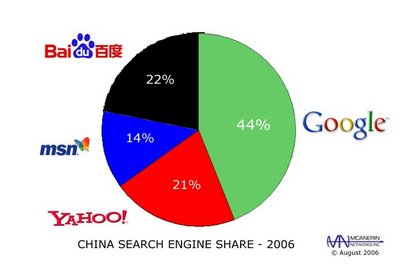The SEO Crackpot Index
There have been a few funny posts and articles in SEO recently, that happened to be published right after I was doing some unrelated research into conspiracy theories (Did you know the world will end tomorrow? Wait, that was yesterday. Darn, I missed it...)
Anyway, the following is inspired by the original excellent Crackpot Index by John Baez - many thanks for the idea, John, and keep up the good work!
The SEO Crackpot Index
Begin with a -5 Point starting credit. We don't want to stifle new ideas, after all.
- 1 point for every statement that is widely agreed on to be false.
- 2 points for every statement that is clearly vacuous.
- 3 points for every statement that is logically inconsistent.
- 5 points for each such statement that is adhered to despite careful correction.
- 5 points for using a thought experiment that contradicts the results of a widely accepted real experiment.
- 5 points for each word in all capital letters (except for those with defective keyboards).
- 5 points for each mention of "Matt Cuts", "Sullivan" or "Mike Greham".
- 10 points for each claim that SEO is fundamentally misguided/delusional/fraudulent (without good evidence).
- 10 points for pointing out that you have gone to school, as if this were evidence of sanity.
- 10 points for beginning the description of your theory by saying how long you have been working on it. 10 additional points if you claim to have been doing SEO since 1994 or before.
- 10 points for offering prize money to anyone who proves and/or finds any flaws in your theory.
- 10 points for each use of "over-optimized", "over-SEO'd" and the like.
- 10 points for each new term you invent and use without properly defining it.
- 10 points for using an existing term in a manner that is clearly different from the accepted definition.
- 10 points for arguing that a current well-established theory is "only a theory", as if this were somehow a point against it.
- 10 points for claiming that your work is on the cutting edge of a "paradigm shift".
- 20 points for suggesting that you deserve a Nobel prize.
- 20 points for defending yourself by bringing up (real or imagined) ridicule accorded to your past theories.
- 20 points for beginning the article or post by wondering how long it will take for you to get banned or the article pulled.
- 20 points for talking about how great your theory is, but never actually explaining it.
- 20 points for each use of the phrase "SEO Gurus" or "SEO Community" as a derogatory statement.
- 20 points for suggesting a theory that, if true, would allow anyone to destroy anyone else's business or website rankings easily, instantly and without recourse, without clear evidence this is happening.
- 30 points for suggesting that search engines are plotting against SEO's or webmasters in general. Another 10 for citing your own rankings drop as proof.
- 30 points for insisting that if critics cannot disprove a theory, then it must of necessity be true
- 30 points for showing (or admitting) no/little knowledge of other people's previous work on the subject.
- 40 points for comparing those who argue against your ideas to Nazis, terrorists, or criminals.
- 40 points for claiming that the "SEO community" is engaged in a "conspiracy" to prevent your work from gaining its well-deserved fame, or suchlike.
- 40 points for comparing yourself to Galileo, suggesting that a modern-day Inquisition is hard at work on your case, and so on.
- 50 points for claiming you have a revolutionary theory but giving no concrete testable predictions.
The higher your score, the more likely you are to be an SEO crackpot. Actually, if it's in the positive numbers at all, you should carefully reconsider your arguments.
Ian

 Ian
Ian


